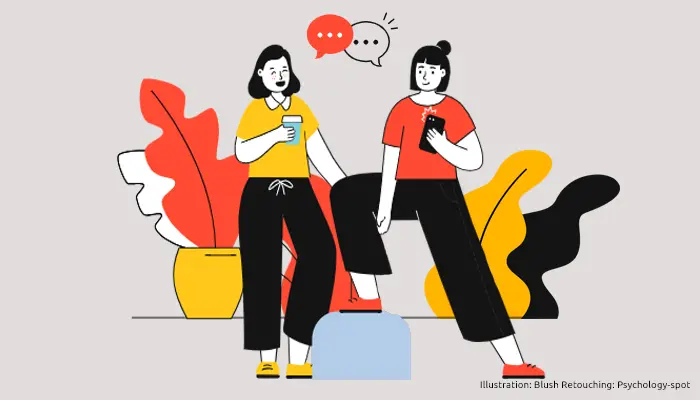
Good friends share not only happy moments, but also bad ones. They are those people who are close to us when we need it most, and allow us to cry on their shoulders. However, now a new study by psychologists at the University of Oxford suggests that the role of friends is far more important than we think, because, in practice, it would be a sort of “natural painkiller” protecting us from pain.
The experiment of the “awkward position”
These researchers recruited 101 young persons and asked them to fill out a questionnaire about their personality characteristics and social relationships, in which not only was investigated the number of friends, but also how long they stayed together and how often.
Subsequently, these people were subjected to a test of pain that consisted in remaining in an uncomfortable position for as long as possible. Of course, with the passage of time the participants began to experience the first cramps and then it came the pain.
So far the researchers found that those who best endured pain were also those who had more friends.
Our brains are programmed to socialize
Neuroscientists believe that our brain is genetically programmed to socialize. It could not be otherwise if our ancestors wanted to survive in a hostile environment because it was very difficult for a person to be able to defend himself from the threatening dangers.
The mechanism chosen by nature to make sure that we are sociable is the endogenous opioid system, in particular the β-endorphin, which has an essential role in interpersonal relationships.
According to theory of social attachment, the endogenous opioid system is critical for establishing and maintaining relationships with others. This system is responsible for stimulating socialization and plays an essential role in the allocation of positive values and the interaction with others. In other words, it ensures that we welcome interpersonal relationships and drives us to set new bonds.
However, the β-endorphin not only motivates us to relate it also creates a strong feeling of well-being and has a powerful analgesic effect. Furthermore, it is known that this neuropeptide has a high affinity with the μ-opioid receptor. The close relationship between the opioid system and the dopaminergic one makes that social relationships are naturally rewarded.
In fact, recently, some neuroscientists at the University of California found that when a person is given naltrexone, a drug that blocks the action of the μ-opioid receptors, decreases his interest in social relationships and the satisfaction that comes from them. It was also found that in diseases affecting social relationships, such as autism, there is a dysfunction of the endogenous opioid system.
Friends, a medicine for the soul and the body
Neuroscientists believe that if the opioid system makes us more sociable, we will maintain a satisfying social life, we will have many friends and spend time with them, thus stimulating the natural production of β-endorphin, a pain reliever that has proven to be far more powerful than morphine used in medicine.
Therefore, be sure to create around you a good social network that supports you. Take care of those people who are willing to sacrifice themselves to support you with their friendship when you’re about to fall into the abyss. Those friends who sustain you and, although they are fully aware of the risk they run for you, do not get scared. This kind of friends are the best medicine for the soul and the body. Make always your best for not to lose them.
Sources:
Johnson, K. & Dunbar, R. (2016) Pain tolerance predicts human social network size. Scientific Reports; 6: 25267.
Inagaki, T. K. et. Al. (2015) Blocking opioids attenuates physical warmth-induced feelings of social connection. Emotion; 15: 494–500.



